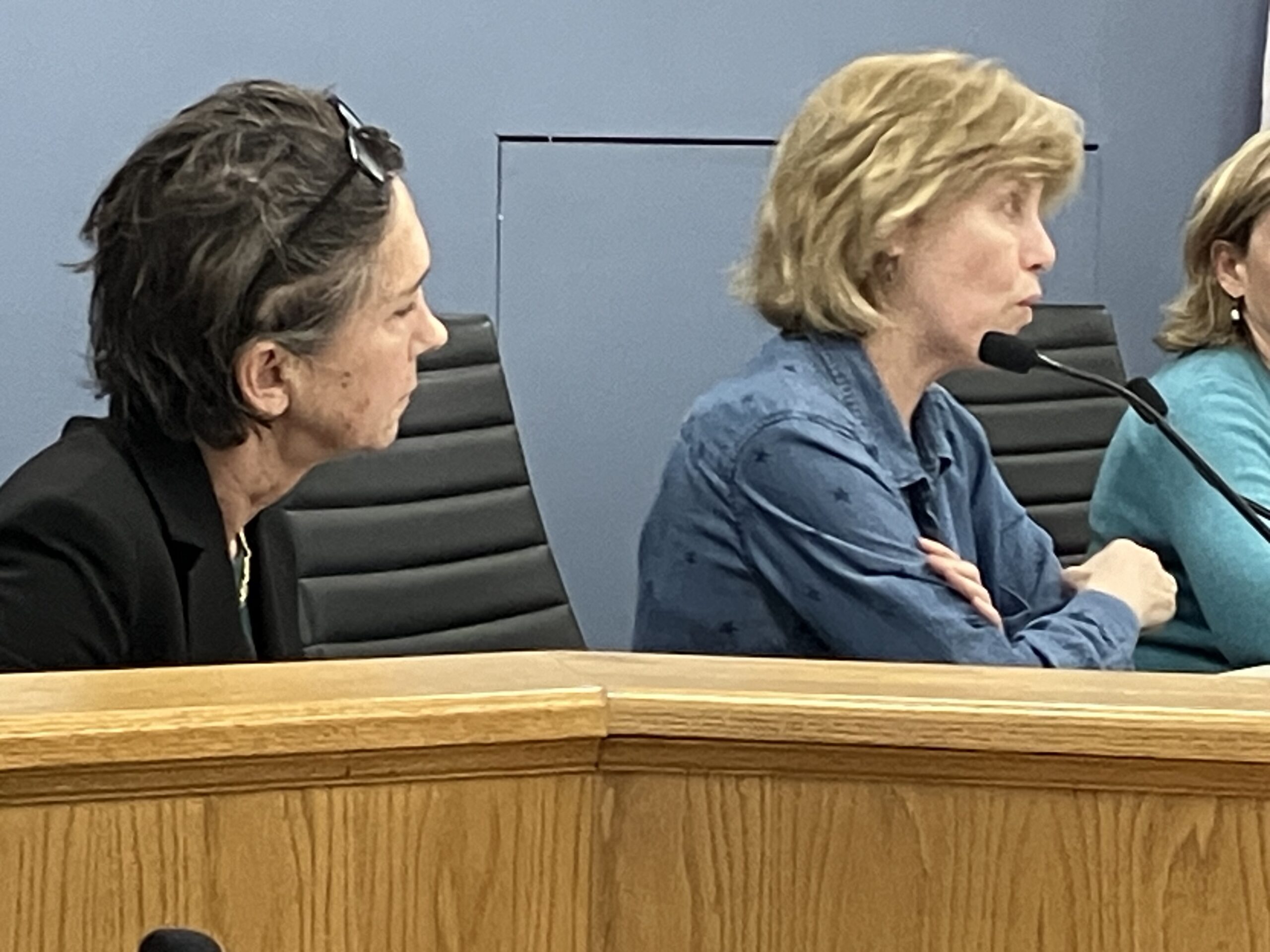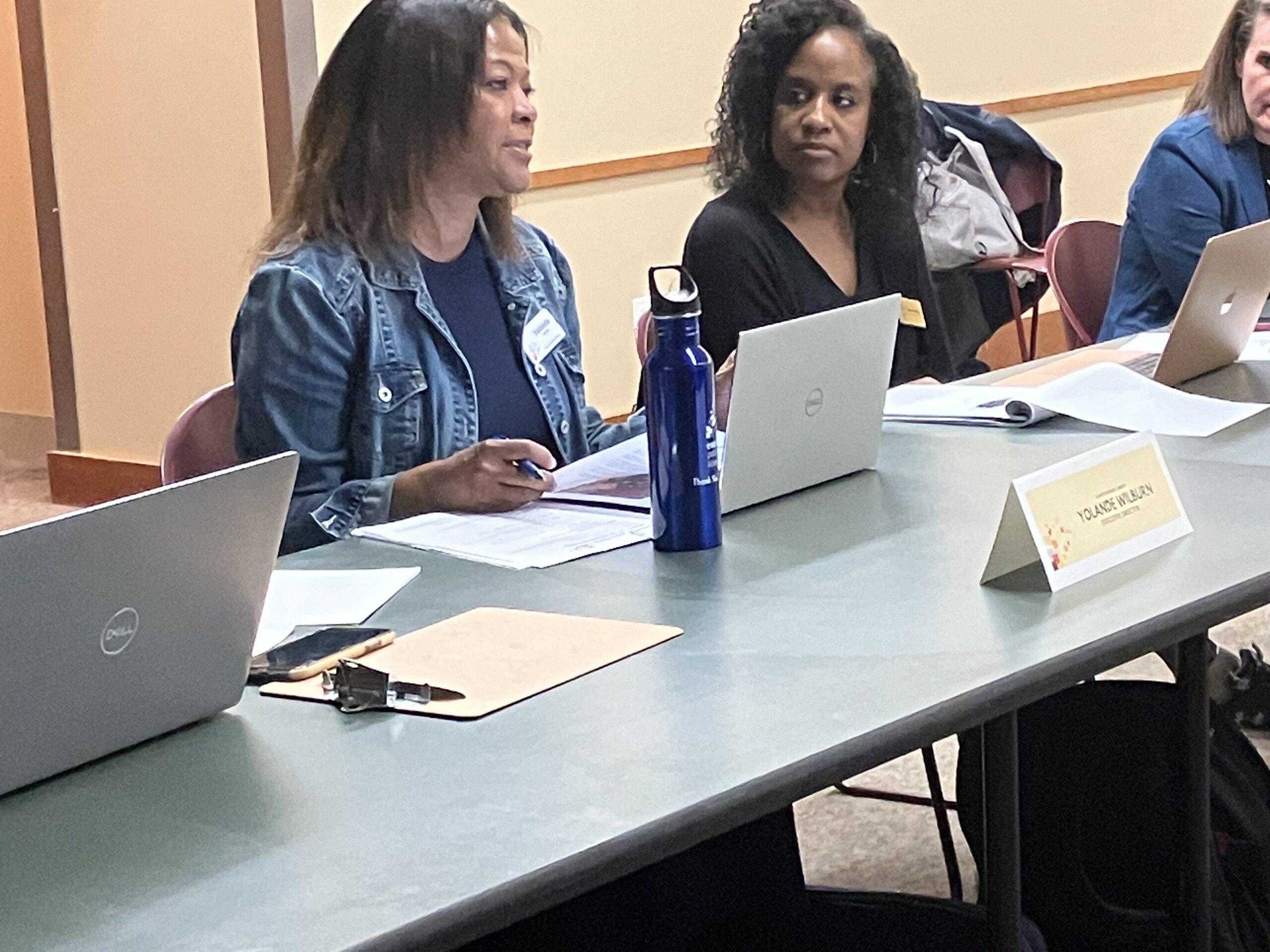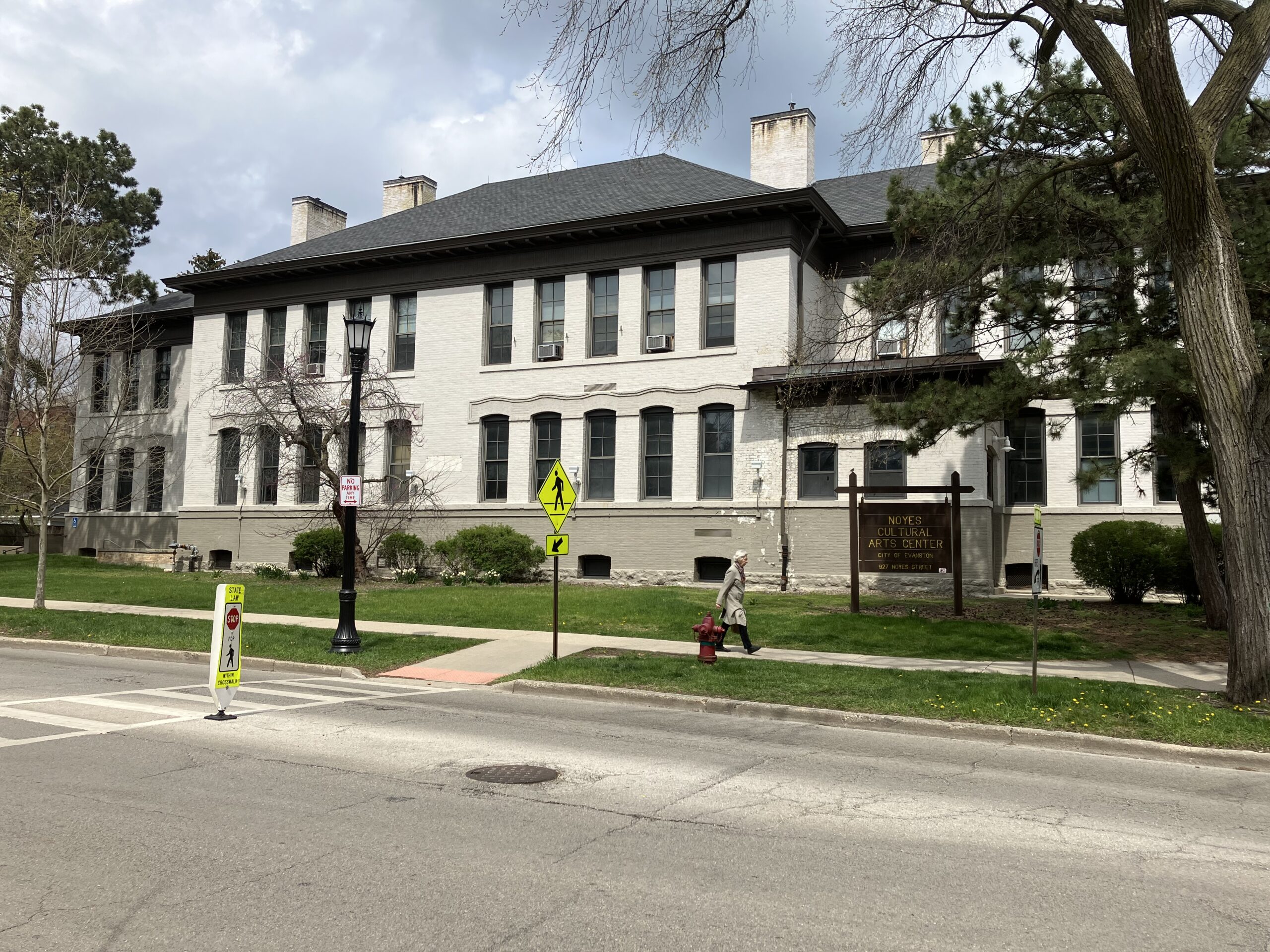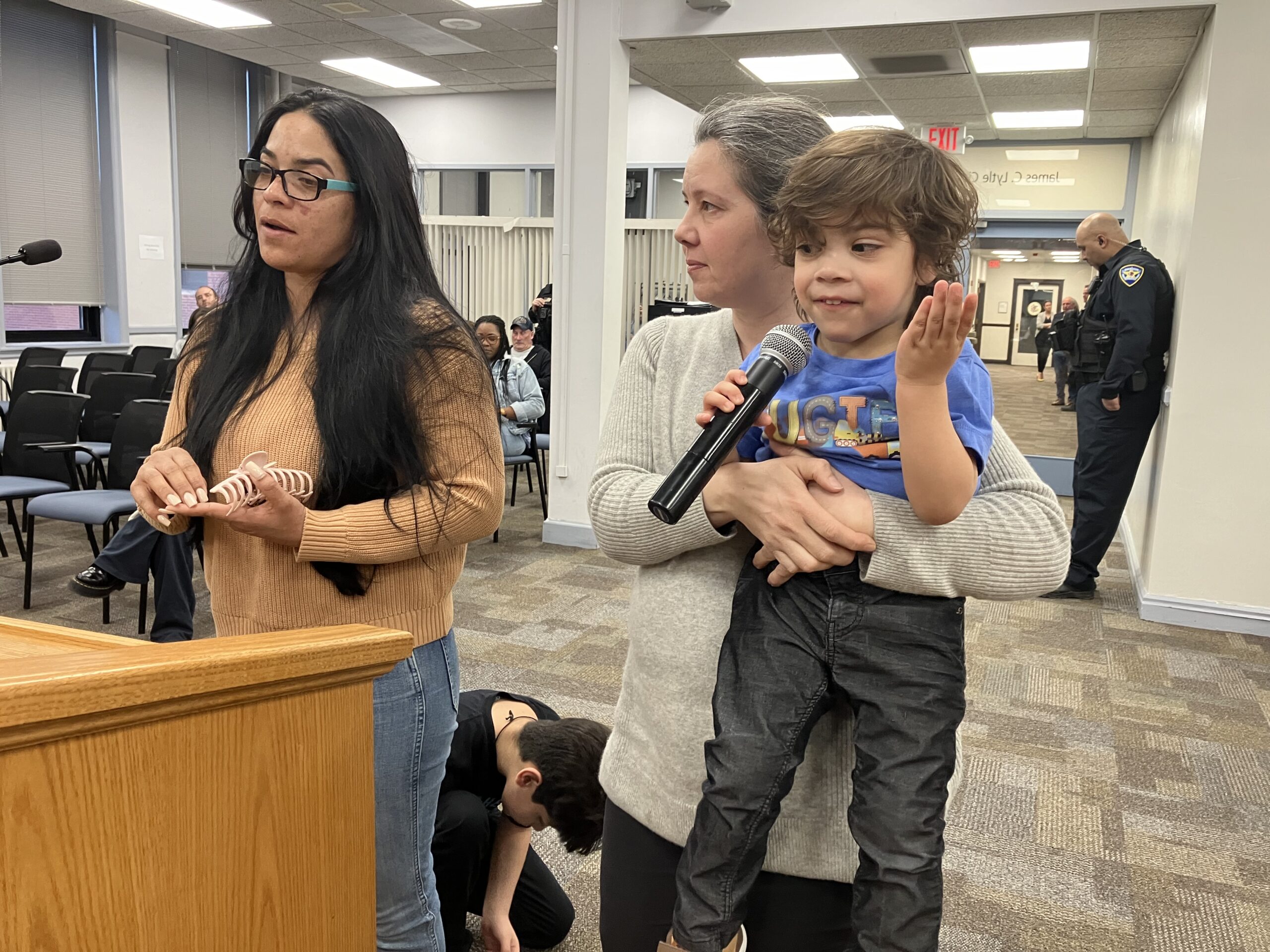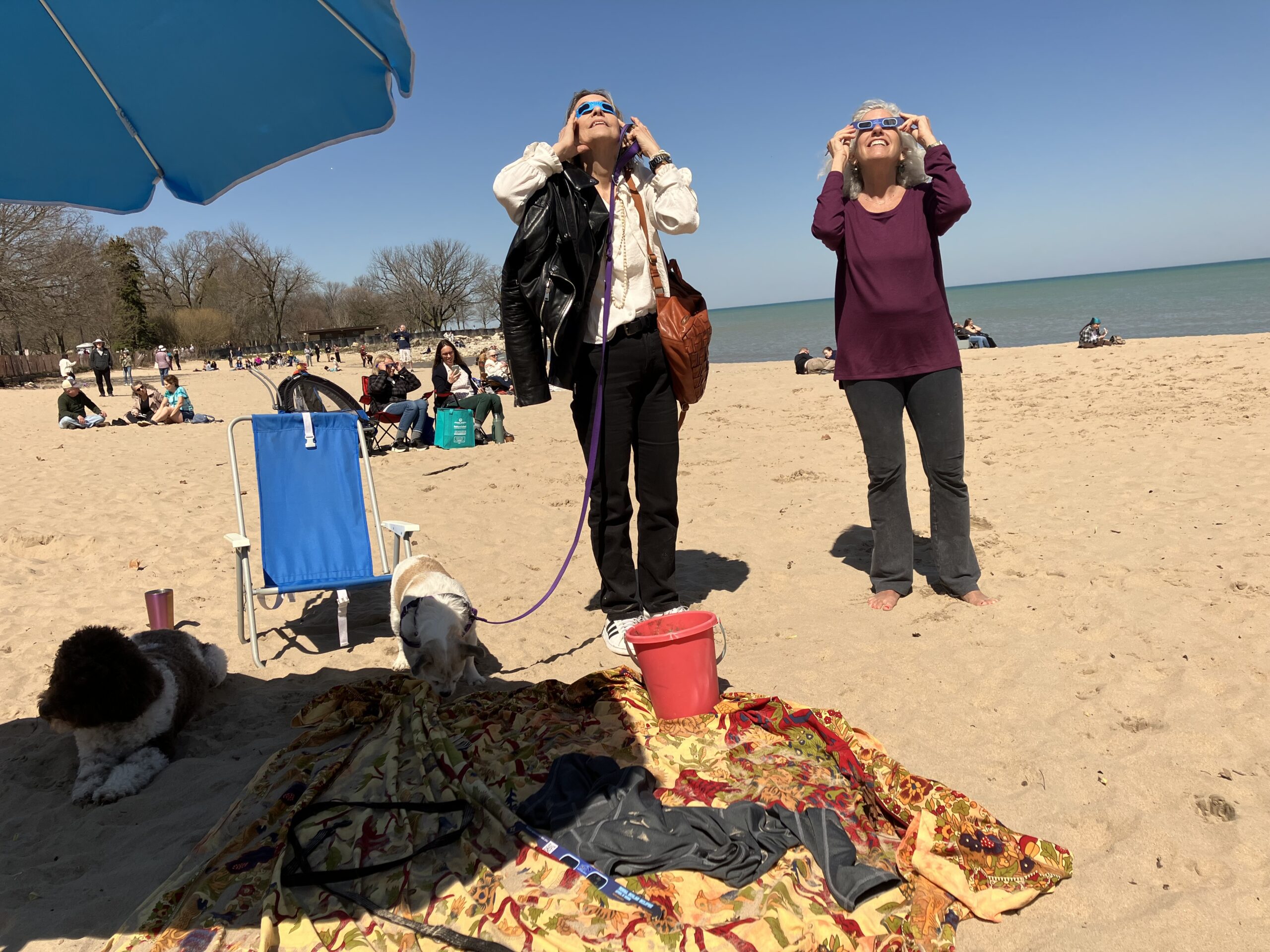By Bob Seidenberg
At a meeting this week, some members of the city’s Finance and Budget Committee raised concerns about the high costs of administering the federal COVID-19 recovery program and pushed for a fuller accounting.
Council Member Clare Kelly (1st Ward), who has been pushing staff for figures on the program, confirmed with officials at the committee’s Monday meeting that the city’s allocated costs for running the American Rescue Plan Act program will run to $1.5 million.
“That’s a big number for a city of Evanston’s size,” Kelly said.
The city has maintained the costs of administering the program go with its complexity. Evanston has approximately 65 separate programs and projects funded under the program, each of which requires substantial administration, compliance and reporting, officials said in a statement.
In an update to the committee, Community Development Director Sarah Flax, whose department oversees the program, said most of the projects that the city is funding with $43.1 million in pandemic funds received in 2021 are on track to meet the deadline the U.S. Treasury set for use of the funds and are not in danger of being returned or “recaptured” by the federal government..
Many programs on track to be completed this year
The regulations specify that projects funded through ARPA must be either completed or scheduled for completion by the end of this year. If not, funding recipients must send their plan and timeline to the U.S. Treasury by July 31.
About 25 of the projects, to which the city has allocated roughly $25 million, have been completed or are scheduled for completion by the end of the year, meeting federal regulations, Flax said in her presentation.
Another $6 million has been allocated to the city’s Participatory Budgeting process and Evanston Thrives initiatives and work is underway to finalize those plans, she said, adding that funds in those areas are at low risk for recapture.
Three projects with ‘slightly higher risk’: Flax
But Flax reported that three large capital projects – Northlight Theatre, McGaw YMCA and Family Focus – have executed grant agreements but currently do not meet the Treasury’s new obligation requirements.
All three were early winners in the competitive process to get council backing for the sought-after federal funds.
- Northlight Theatre received council backing April 2022 for $2 million in ARPA money to facilitate the theatre’s move from Skokie back to the city and fund a new theater at 1012-18 Church St.
- McGaw YMCA was approved in June of that year for a $3 million renovation of its men’s residences.
- And Family Focus/Our Place won council support in July of that year to receive $3 million to renovate and upgrade its longtime home at 2010 Dewey Ave.
Although the three projects are technically not currently in compliance with ARPA requirements, Flax expressed confidence that the groups would meet their obligations and move forward with the work.
“Staff is working with each organization to identify eligible expenses, such as architectural services, construction drawings, plan reviews and permit fees, demolition costs, etc. that have been incurred will be submitted for reimbursement, as well as what other expenses, whether soft costs or construction, need to be procured and under contract by December 2024 to comply with Treasury’s obligation requirements,” she said in her report.
“These funds are, however, at a somewhat higher risk of recapture,” she added.
Another major project, meanwhile, the Housing Opportunity Development Corp.’s planned 33-unit Darrow and Dodge building — the recipient of $1.5 million — is on hold, pending the outcome of a lawsuit that alleges the development will have adverse neighborhood impacts.
“Building plans have been submitted and are on hold pending the outcome of the case,” Flax said her report. “A combination of reimbursement of eligible expenditures on development costs and contracts for site preparation and construction makes these funds a low risk for recapture if the case is dismissed.”
In discussion, several committee members raised questions about the costs associated with the administration of the ARPA-funded activities.
Kelly, in particular, has sought details from the city, in “an attempt to get accountability” on ARPA spending. In an exchange with Flax at Tuesday’s meeting, she added up the allocations on a spreadsheet supplied to committee members, coming up with the $1.5 million figure.
She also sought details about the employee the city has contracted with for grant compliance full time.
From September 2022 until November 2023, the city had been using 2.5 full-time employees for participatory budgeting. The inaugural pilot project let community members identify priorities to fund in 2024. The council approved a $3 million allocation for the program in March of 2022.
In June 2023, the employee was hired for ARPA grant management, compliance and reporting.
The ARPA manager worked the remainder of 2023, and is contracted to work through the first quarter of 2027, when the final report the city’s use of federal pandemic funds is due to the federal government, Flax told the committee.
From June 2023 to February 28, 2024, that staff member’s compensation is approximately $56,000, Flax said, in response to questions from Kelly.
Administrative costs ‘out of whack’
“She is the main person doing the compliance and recruitment, collecting everything, making sure people are following the rules and doing all the recording,” Flax said, responding to a question from Kelly about the ARPA manager’s duties.
Leslie McMillan, one of the members of the committee with a strong background in finance, said she had reached out to get a comparison on ARPA administrative costs in nearby communities, naming Skokie, Wilmette and Morton Grove.
“None of them spent anything on administration. They did it all internally,” she told Flax. “It just seems to me we’re way out of whack, paying an enormous amount on administration.” McMillan further maintained that the percentage allotted to administrative costs in Evanston is higher than Chicago.
The city, responding to questions from the RoundTable on Wednesday, reported that $536,750 had been spent on ARPA administrative costs as of Feb. 28; $305,915.97 of that total was spent for participatory budgeting, the response said.
The combined funding allocated for administrative expenses includes $900,000, plus $100,000 for Northwestern University’s work in connection with the participatory budgeting process, and $500,000 for implementing the program, for a total of $1.5 million.
“The remaining administrative funds will be used to manage the administration, compliance and reporting on multiple programs and projects that will be completed between now and December 31, 2026,” officials said.
More programs in Evanston than other suburbs
There are several factors that make the city’s ARPA administrative costs not directly comparable with those of other communities, officials maintained.
“One is how many programs or activities a municipality undertakes with its ARPA funding,” the city statement said. “Evanston has approximately 65 separate programs and projects, each of which requires substantial administration, compliance and reporting. Cicero received $42,882,464 of ARPA and allocated $42,000,000 for their water and sewer facilities. Oak Park received $38,984,402 of ARPA and has $1.95 million for additional staff to manage application process, disbursements, reporting, etc. in their Summary of Obligated Funds and Funds Requested. This amounts to 5% of their ARPA allocation.”
Kelly released a statement of her own after the meeting, explaining the motivation behind her concerns.
“Bringing greater fiscal accountability to our City is one of my main objectives as a Council Member,” she said in the statement. “Residents expect a clear accounting of how our city has allocated and disbursed the $43 million of federal ARPA funds.”
Kelly said when the city received “this enormous federal windfall of a grant, I immediately requested these funds be segregated into a separate account with clear accounting of allocations and expenditures that residents could easily access. In 2023 I requested a chronological roster of dates of Council approved allocations and corresponding disbursements of ARPA funds.
“I want an accounting of where this money has gone and is going, to see what we can save and then put this money to work in our community,” she said.
Livingston concerned about ‘at risk” dollars
In discussion, Budget Committee member David Livingston, formerly the panel’s chair, raised another concern: the possibility that allocated money might be recaptured by the federal government if some of the major projects don’t move forward.
Livingston estimated the “at risk” amount at about $9 million. He asked whether the city had received all the money it needed under the revenue replacement allowable use category, which allows a local government to use its funds to make up for revenue lost during Covid.
“I’m concerned that we’re going through the excess reserves and the general fund extraordinarily quickly,” he said. “And it would be good to know how much, if we wanted to reallocate some of these funds for projects that are most delayed here, and we are legitimately concerned about.”
For instance, he said, ARPA money could go for water main work; the city is replacing its mains, many of which are over 100 years old.
“But if we have money that could otherwise be supporting the general fund and what’s going through there, and it’s a matter of just reallocating some of this $9 million into revenue replacement,” he said, “I think we should understand what that possibility is, and how much money it could be.”
Flax said she didn’t see a great deal of risk of not getting the money expended properly. She added, “I think it would be very difficult to go back to organizations to which we’ve made this commitment and tell them we’re going to kick it back.”
She included a contingency plan to reallocate funds at risk for recapture if they fail to move forward. The plan includes reallocating approximately $1.5 million to lead service line replacement work as well as putting $1 million toward the renovation of Independence Park on Central Street.
Shari Reiches, the new chair of the committee, suggested that Flax come back to the committee at its June meeting with further responses.
She said that she had the same concern Livingston had about the status of the “at risk” $9 million in capital improvement projects, currently blank on the city’s spreadsheet for completion.
